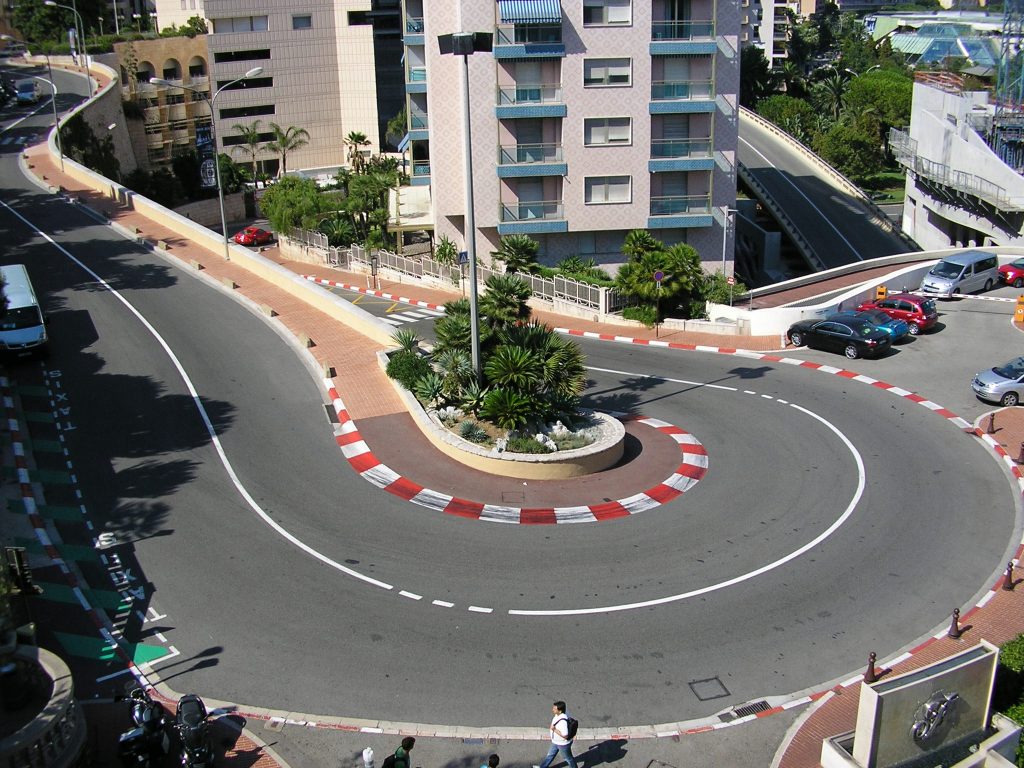
Ride a Bike in the…..
‘Monaco is 78 laps of holding your breath’– Fernando Alonso.
In 1929, Antony Noghes and the Automobile Club de Monaco organised the inaugural race.
William Grover-Williams won the very first race in a Bugatti.
This success established Monaco’s iconic status.
It is known for its tight, 3.337 km street layout winding through Monte Carlo, with narrow corners, the tunnel, and Casino Square, making it a visual and technical spectacle.
It demands high skill as overtaking is limited; qualifying is crucial, with barriers mere millimetres from cars, making it a test of finesse and control.
After WWII, Monaco returned in 1948 and joined the official F1 Championship in 1955, securing its place on the global stage.
Ayrton Senna achieved six victories here, earning the title ‘The King of Monaco’ and solidifying his place in Monaco’s history.
Beyond the race, Monaco attracts celebrities, royalty, and the elite. It is famed for its yachts, fashion, and unparalleled glamour.
Monaco’s tight layout and minimal run-off areas pose safety challenges as F1 cars get faster, raising risks on this confined track.
Criticised for its processional nature, with few passing opportunities, the track struggles to meet modern demands for high-action racing.
Monaco has unique privileges, including exclusive broadcasting rights. Liberty Media’s push for uniformity across circuits has put these benefits under review.
New races in cities like Miami and Las Vegas bring fresh glamour, challenging Monaco’s exclusivity on the calendar.
Future of the Monaco Grand Prix:
Monaco has negotiated a contract extension until the end of the 2025 season.
Despite recent uncertainties, the contract extension reflects F1’s intent to keep Monaco on the calendar, though further adaptation may be needed.
Discussions about minor track adjustments are ongoing to address overtaking issues, though Monaco’s constraints limit major changes.
Enhancements could include an increased focus on luxury and fan experiences.
As one of F1’s original venues, Monaco has a unique appeal for fans.
Alongside traditional races like Silverstone and Monza, Monaco is a cultural pillar for the sport.
Proposals for Monaco to rotate with other European venues could allow F1 to balance tradition with expansion.
Removing Monaco would face significant backlash as a jewel of the F1 calendar.
If Monaco agrees to certain commercial adjustments with Liberty Media, its place on the calendar is likely secure due to its iconic status and appeal.
Monaco’s legacy and allure give it a strong chance of remaining on the F1 calendar, but adaptations will be essential to meet modern motorsport demands and retain its relevance.
‘Racing in Monaco is like riding a bicycle around your living room. It’s just insanity on wheels. – Eddie Irvine


